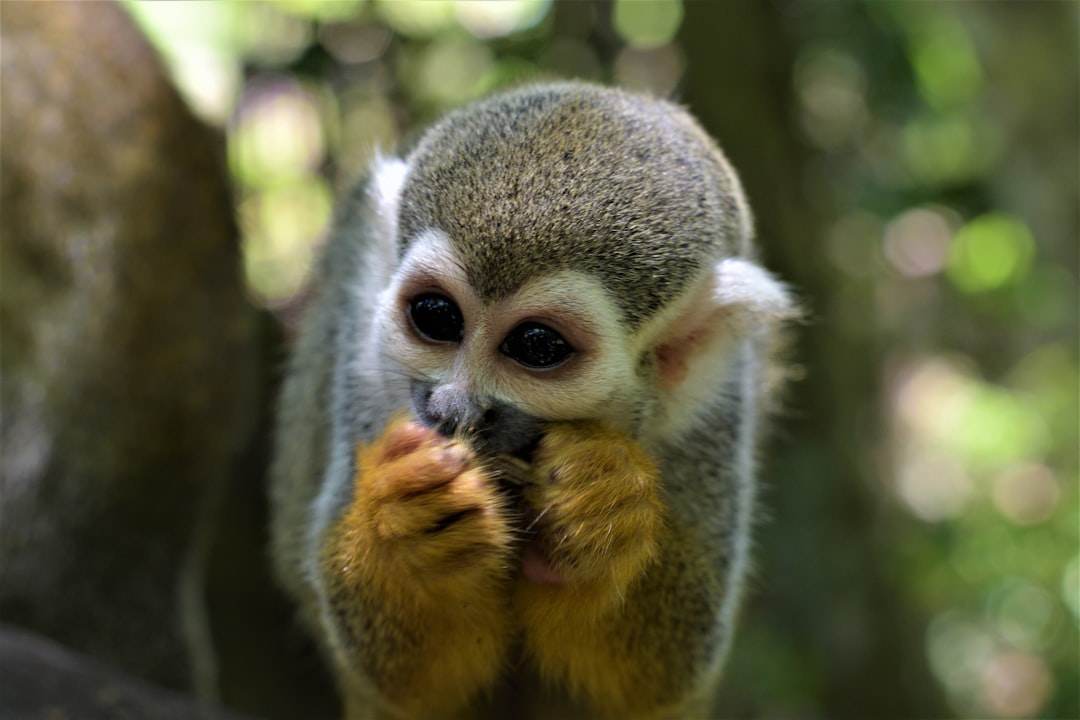At a minimum, an apology admits a mistake. Invoke magic words like “sorry” or “I ask your forgiveness”. Better still if the expression of remorse is genuine.
For a species that relies on group coordination, it’s a superpower to be able to repair bonds, reduce conflict, and maintain cooperative relationships. Competition is inevitable and so are accidents. Being able to say “sorry” makes these things a little less fraught.
How close are other animals to understanding the concept of “sorry”? How could we differentiate an apology from similar notions like consolation, submission, and reconciliation? An ability to recognize mistakes would seem to be a key ingredient.
Humans have many rules and norms that govern our behavior, and when they are violated we expect or want something to happen, whether that’s an apology or punishment. We are creatures that care about fairness. What mistakes could an animal have need to apologize for?
Social faux pas like landing in the wrong nest, rolling over and squishing a sleeping partner, or stepping on a someone’s foot amount to personal space violations. Sleep spots and feeding areas can be grounds for conflict.
Throwing your weight around is one way to assert control over resources or dominance in a social order. Winners are often unyielding, seemingly drunk on power. But the family or group may suffer if this kind of behavior is extreme.
Losers or victims often makes a gesture to submit. But in playful or relaxed situations, those gestures might mean “I’m just goofing” or “I’m not challenging you.”
Dogs and other canines lick lips, lift their front paw, and bow. Other mammals have similar signals meaning “I don’t want to fight”. A subtle change in posture can say a lot. Backing up, facing away, and paying attention to something “over there” is a clear way to disengage from a contest or play that is getting too intense.

Prairie voles form monogamous pair bonds for life. In an experiment, couples were separated then reunited, and they immediately consoled each other with close contact and touching.1 It seems kind of like apologizing for being gone too long.

Deciphering the intention behind animal behavior poses challenges. Labelling a behavior an “apology” may impose too much. Adjacent behaviors may be more identifiable:
reconciliation: restoring friendly relations
consolation: comfort received at a time of grief or disappointment
submission: yielding to another
When elephants show signs of distress, their group provides comfort by mimicking signals: raising tails, flaring ears, urinating and defecating while chirping, and sometimes forming a protective circle around the victim.2 They also mourn deaths together.3 These seem to be in the category of consolation rather than apology, but the overlap is something like “I’m sorry this happened to you”.
Capuchin monkeys have rituals by which they test bonds and the state of relationships. They pass “sacred objects” like bark, flowers, fruit, and hair, back and forth, hiding them in their hands and mouths. They also clasp hands, place cupped hands on their partner’s face, and drum on each other’s bellies.4 Following tense coalitionary aggression and rank reversals, these interactions seem to help test and restore friendly relations.

Does your dog understand when you step on its tail and it yipes and then you reach out and say sorry repeatedly? If they accept being close to you immediately after, I think it’s fair to call that reconciliation. The stronger your pre-existing relationship, the more easily the dog gets it that you weren’t being mean. But when you’re out-of-town relatives do it at thanksgiving the dog might be a little more miffed.
I suspect we might find similar levels of grace in pigs, cows, and horses.
There are a few species that are known to hold a grudge, apologies be damned. Corvids and tigers are know to have it in for certain people; and it doesn’t seem like they are very forgiving.
Vladimir Markov was a poacher who shot and wounded a Siberian tiger, and then stole part of the tiger's kill.
The injured tiger hunted Markov down in a way that appeared to be chillingly premeditated. The tiger staked out Markov's cabin, systematically destroyed anything that had Markov's scent on it, and then waited by the front door for Markov to come home.5
Corvids remembered for weeks a researcher that stole their cheese. They taught ravens to trade bread for cheese. One researcher cheated by taking bread and not giving cheese, and she was shunned by the birds weeks later. An observer bird who watched the initial experiment did not also shun the cheater, so it seemed to be connected to a first-hand experience of fraud.6
We don’t know why orcas are ramming boats in the Strait of Gibraltar, but there’s at least a possibility it is grudge-driven.7 It’s also a plausible explanation for orcas that have killed trainers8, perhaps not due to a grievance with the trainer, but lashing out against captivity and stress, directed at people they might have perceived as being responsible for their situation.
Cetacean social dynamics are tough to study because they live in the ocean. But evidence suggests dolphins reconcile after conflicts. Researchers observed dolphins engaged in aggression by tracking their burst-pulse threats (whistles and bubbles).9 They found former opponents who rubbed, swam in contact, or swam in sync together were less likely to show renewed aggression.10
While true apologies may be uniquely human, many social animals reconcile and console each other to test and restore relationships after conflict and distress. We don’t know if animals feel regret, but their peacemaking gestures reveal a hint of an evolutionary foundation on which our more elaborate apologies are built. In a complicated world, it pays to make up.
Prairie voles https://www.science.org/doi/abs/10.1126/science.aac4785
Elephants console by mimicking distressed individuals https://www.science.org/content/article/elephants-console-each-other
Elephant funeral rituals Elephants on the Edge by G.A. Bradshaw
Capuchin monkey rituals https://royalsocietypublishing.org/doi/10.1098/rstb.2019.0422
Orcas ramming boats https://outdoors.com/orcas-boat-ramming-behavior-explained-by-experts/
Tilikum and Keto, the orcas that killed trainers in the 1990s and in 2010 https://whalesanctuaryproject.org/whales/tilikum-the-whale-who-rebelled/
Dolphin whistles and bubbles https://www.nature.com/articles/s41598-020-60423-6#Sec2
Dolphin reconciliation https://www.nature.com/articles/srep14275

